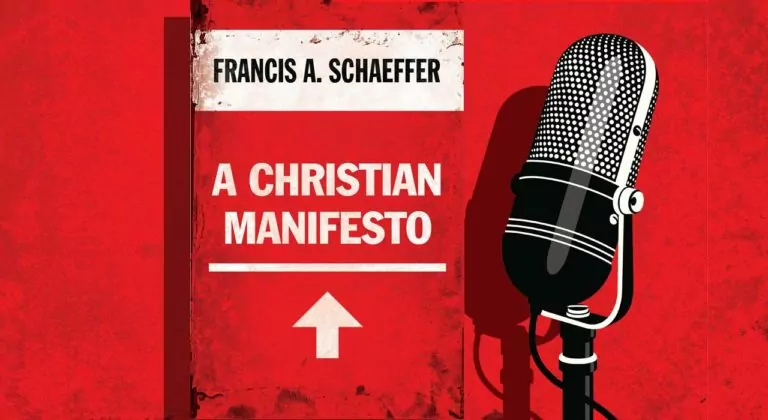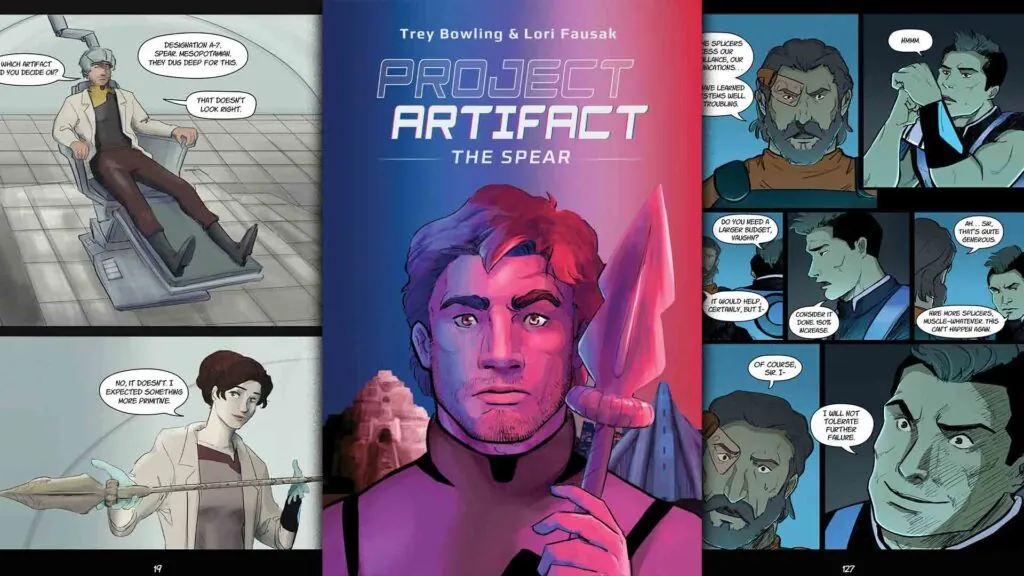Francis Schaeffer (1912-1984) has long since been retired from his earthly duties, but the Presbyterian pastor, philosopher, and apologist was still up for an interview (of sorts) on the desperate need for a clear Christian witness in the public square.
The text in bold is his own words, taken from his book A Christian Manifesto.
****
JON DYKSTRA: A Christian Manifesto was your last book. Why did you feel the need to write it?
FRANCIS SCHAEFFER: It was intended as a rallying cry for Christians, to stand up against the world’s humanist worldview, by offering up God’s own. The basic problem of the Christians in this country…in regards to society and in regards to government is that they have seen things in bits and pieces instead of totals. They have gradually become disturbed over permissiveness, pornography, the public schools, the breakdown of the family, and finally, abortion. But they have not seen this as a totality – each thing being a part, a symptom of a much larger problem. [We] have failed to see that all of this has come about due to a shift in…. the overall way people think and view the world and life as a whole. This shift has been away from a worldview that was at least vaguely Christian…toward something completely different – toward a worldview based upon the idea that the final reality is impersonal matter or energy shaped into its present form by impersonal chance.
The phrase “separation of church and state” has been used to push Christians to the sidelines in politics, and we have, for the most part, gone willingly. Christians have forgotten that the Lordship of Christ covers all of life and all of life equally. That includes politics as well. A Christian Manifesto is a call for Christians to reenter the public square as Christians. It argues that the Christian worldview is absolutely vital to civil society and we need to share it with them.
JD: Why is it vital?
FS: Because it is foundational! In the American Constitution we have the phrase “certain inalienable rights.” Who gives the rights? The State? Then they are not inalienable because the State can change them and take them away. Where do rights come from? Now Christians know there is Someone who gave these inalienable rights, but if you don’t recognize the Giver, how can you recognize His gift? If we ignore God and build our law on humanist assumptions we are left with rights that have no foundation. And if we can’t explain the basis for these rights, how can we complain when they are taken away? That’s why a secular worldview is the road to tyranny.
JD: How should Christians respond when their government ignores God?
FS: Be a witness! We are where we are today in large part because of the many voters who held to two bankrupt values – personal peace and affluence. Personal peace means just to be left alone, not to be troubled by the troubles of other people, whether across the world, or across the city. Affluence means an overwhelming and ever-increasing prosperity – a life made up of things and more things – success judged by an ever-higher level of material abundance. Even as voters demand peace and prosperity, we Christians need to stand on principle. We need to speak, even when that is going to cause us trouble, and cost us materially.
JD: But are Western Christians prepared for the cost that comes with being a witness?
FS: Many are scared. That’s because obedience can be scary. I know many among your readership had grandparents involved in hiding Jews from the Nazis. What your grandparents understood is that when we recognize Christ as Lord of All then at a certain point there is not only the right, but the duty to disobey the State. That’s why your grandparents were willing to risk the wrath of Man – because they valued the approval of God. And they understood that when Jesus says in Matthew 22:21: “Give to Caesar what it Caesar’s, and to God what is God’s” it is not:
GOD and CAESAR
It was, is, and always will be:
GOD
and
CAESAR
The civil government, as all of life, stands under the Law of God.
JD: You’re talking here about there being a time and place for civil disobedience. What cautions or considerations would you share when it comes to resisting a government imposing wicked laws?
FS: Samuel Rutherford suggested that there are three appropriate levels of resistance: First, [the Christian] must defend himself by protest (in contemporary society this would most often be by legal action); second, he must flee if at all possible; and third, he may use force, if necessary to defend himself. One should not employ force if he may save himself by flight; nor should one employ flight if he can save himself and defend himself by protest and the employment of constitutional means of redress.
JD: Here in the West we are still free to make use of the first possibility, taking legal and political action. What would you say to Christians who are hesitant to speak out against our society’s humanist worldview, and downright scared about presenting the explicitly Christian alternative?
FS: I would tell them the world needs to hear a Christian witness. And until we share that, anything we do is only treating the symptoms. Then I might quote to them a few lines from Bob Dylan’s Slow Train Coming:
You’ve got gangsters in power and lawbreakers making rules
When you gonna wake up,
When you gonna wake up,
When you gonna wake up
And strengthen the things that remain?
A version of this article first appeared in the March 2008 issue.











